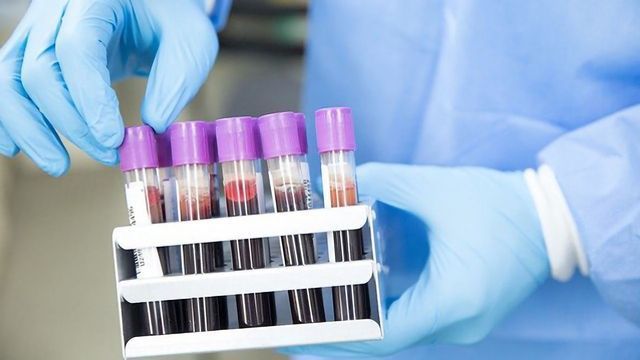Trending News
News

News
New Test Could Help To Fight Deadly Melanoma
Researchers from QIMR Berghofer Medical Research Institute have developed a prototype test that can help identify if patients with deadly metastasised melanoma are likely to benefit from immunotherapy.

News
Immunotherapy Target Discovered for Malignant Brain Tumors
Scientists report that they have discovered a potential new target for immunotherapy of malignant brain tumors. By blocking a specific signaling pathway in an animal model, the team was able to stimulate T-cell killing of cancer cells in the brain.

News
Liquid Biopsy Helps To Assess Effectiveness of Therapy for Colorectal Cancer
A liquid biopsy examining blood or urine can help gauge the effectiveness of therapy for colorectal cancer that has just begun to spread. Such a biopsy can detect lingering disease and could assist in deciding whether a patient requires further treatment.

News
Antioxidant Found in Green Tea May Increase Levels of p53
p53 is a natural anticancer protein, sometimes called “guardian of the genome” due to its ability to repair DNA damage or destroy cancer cells. A study exploring the interaction between p53 and the green tea compound epigallocatechin gallate now points to a new therapeutic target.

News
Inhibition of Key Enzyme Could Help To Stop Growth of Glioblastoma
A key enzyme, PRMT5, controls a large network of proteins important in cell division and growth. Inhibition of this enzyme paves the way for a new class of drugs that could stop glioblastoma, a deadly brain cancer, from growing.

News
Insights Into How Cancer Cells Spread
Using mouse models, cancer researchers have identified mechanisms by which malignant tumor cells extend their toxicity to distinct cell types and in turn help them to spread.

News
Antibody–Drug Conjugate Reduces Risk of Death by 30% in Patients With Common Bladder Cancer
The antibody–drug conjugate (ADC) enfortumab vedotin (PADCEV®) has been shown to increase the survival of patients with urothelial carcinoma in a recent study. Results from the randomized open-label Phase 3 trial were published in the New England Journal of Medicine.

News
Heart Function Test Helps To Reduce Risk of Chemo-Induced Heart Damage
One in twenty high-risk cancer patients face the possibility of developing heart failure from certain cancer therapies. Results of a clinical trial point to the benefit of using a more sensitive test to detect heart function issues early, so cancer patients don't have to fight heart failure too.

News
Injecting Hydrogen Peroxide Into Tumors To Improve Radiotherapy
An early clinical trial has shown that a simple injection of a common antiseptic could boost the effectiveness of radiotherapy for breast cancer and other cancers. Scientists found that a solution of hydrogen peroxide, an antiseptic that cleans cuts and scrapes, can also make cancer cells more sensitive to radiotherapy.

News
Survival of Prostate Cancer Patients Is Increased by Melatonin
Melatonin administration proved to be an independent prognostic factor and reduced the risk of death of prostate cancer patients in a retrospective study of 955 patients.
Advertisement




